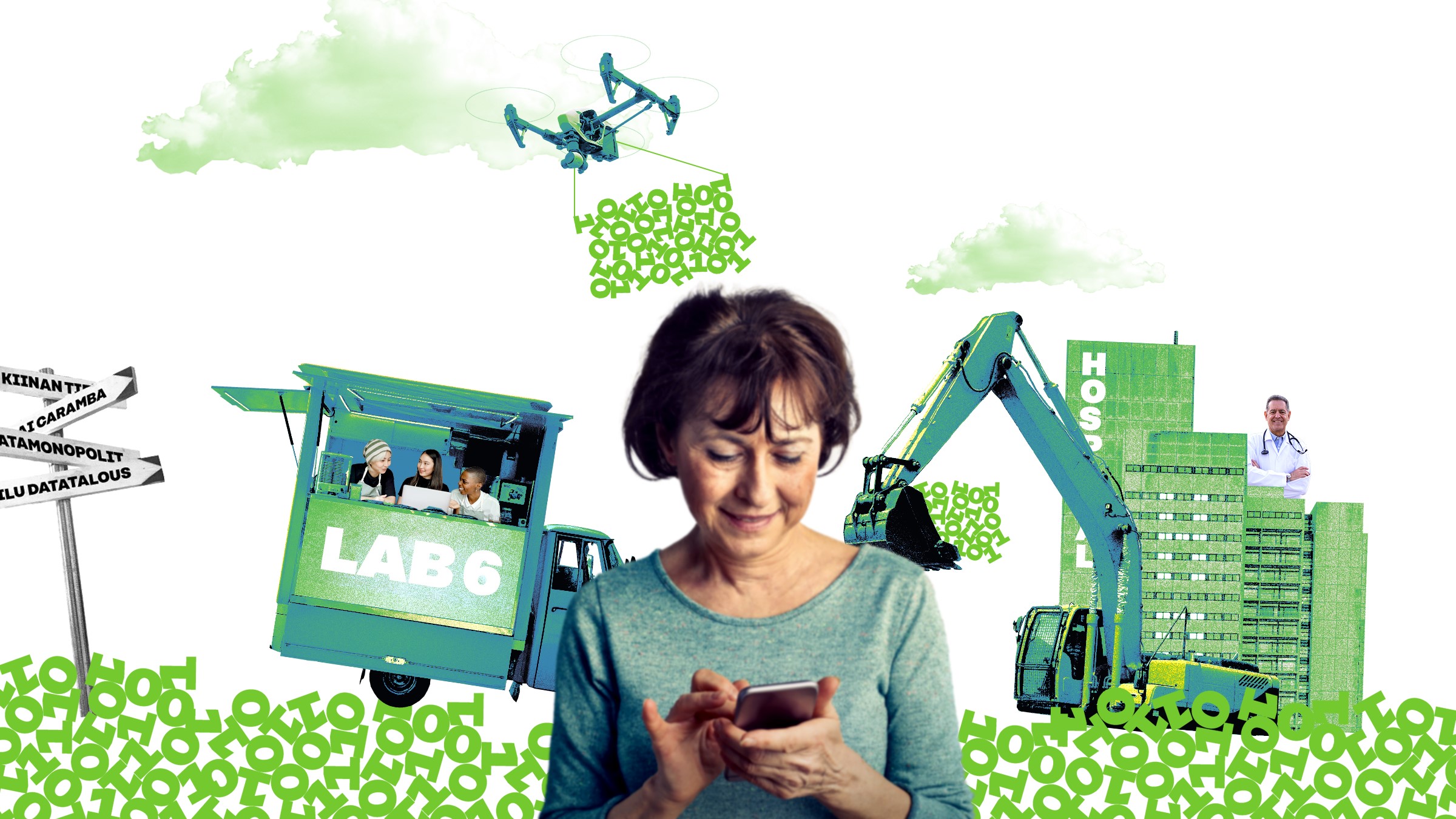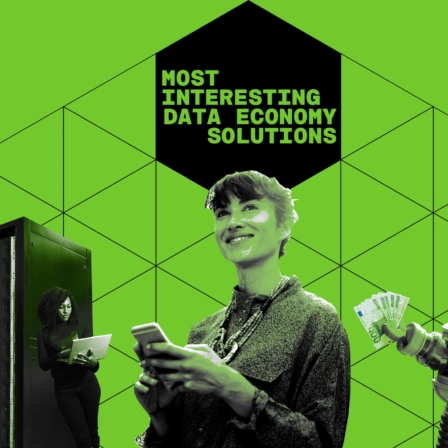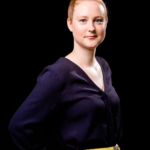Data and AI are opening up new opportunities for innovation. In a pilot call that ended in March 2024, Sitra was looking for teams to develop better services using data and AI.
The pilot teams selected for the Sitra Lab 6 Change Programme will develop areas such as lifelong learning pathways, elderly care and employment services.
The programme was open to anyone from any industry, organisation or community, including applicants without an organisational background. Thirty-six pilot teams applied and eight were selected.
Sitra is launching a six-month Change Programme to stimulate experimentation and collaboration between different stakeholders. During the programme, the teams will benefit from expert support, peer-to-peer mentoring and seed funding.
“It was great that so many teams were inspired to come up with fairer ways to use data for the benefit of Finns and Finnish society. The teams that applied for the programme had pioneering skills and the service innovations proposed in the call were of a high quality,” says Kirsi Hanhisalo, Director of Sitra Lab.
Finding new ways to use data for services
The teams participating in the programme will experiment with new ways of using data fairly in service development. They are at the heart of the data-driven economy: developers in all sectors need to find increasingly responsible and effective ways to use data for the benefit of people, communities and societies.
New forms of collaboration are also needed to share data between different actors, as sharing data with others increases the value and benefits of data. Sitra aims to accelerate the better use of data collected in services, new ways of sharing and combining data, and the smarter deployment of data-driven service concepts through experimentation.
According to Tarmo Toikkanen, Sitra’s Senior Lead on Competitiveness through Data, it is important to experiment with new ideas so that Finland can develop more of the skills needed in the data economy.
“Imagination is the only limit when it comes to creating new services based on combining data from different parties. Collaborative data-sharing networks will grow strongly this year and next with EU regulation. So now is the time to imagine, experiment and design new services,” he says.
Experimentation and promoting a culture of experimentation are a key part of Sitra’s work. The Sitra Lab programme will fund data-driven service experiments with a maximum total budget of €105 000. The amount of funding per team will be determined by the goals and needs identified in the pilot plan to be developed during the programme.
“We will provide the selected teams with a common development forum and the participants with new perspectives on the use of data in service development. Our aim is to create a better everyday life and a fairer society for Finns,” says Hanhisalo.
Experiments selected for the Sitra Lab programme
EDWARD – A data-driven service for families to cultivate a child’s lifelong learning path
In this pilot, a Finnish-Irish team aims to develop a data-driven service for families to support a lifelong learning path for children. The pilot will be carried out by MyData Global ry, Paula Bello Consulting and Headai.
Sports Data Hub
The pilot will develop a national sports data repository that will bring together sports data from different source systems for use by the digitalising world of sport. The pilot will be carried out by the Finnish Olympic Committee, the Institute of Peak Sports KIHU, the University of Jyväskylä, the Urhea Foundation sr. and the Helsinki Olympic Coaching Centre.
Data network of employment actors
The pilot will build a regional data network and service ecosystem of employment services, enabling job seekers and students to manage and authorise their own data. The pilot will be carried out by the Vastuu Group, the City of Seinäjoki, the TE Office of South Ostrobothnia, Into Seinäjoki and Sedu, the Seinäjoki Education Consortium.
Employers
As the law changes, unemployment funds will be able to offer employment services to their members. The YTK Unemployment Fund team is piloting a new employment service of its own. The YTK Unemployment Fund is responsible for the pilot.
Know the statistics, exclude exclusion
The pilot will develop an AI-based data service to prevent youth exclusion, with a focus on data-driven leadership and better decision-making. The pilot will be carried out by Into – Youth Outreach and Workshops Association and the Regional State Administrative Agency of Western and Inland Finland.
Effective outreach to older people
The pilot will develop effective forms of outreach work to help older people get timely help and live safely at home. The pilot will be carried out by the Union for Senior Services (VALLI ry), Turku Senior Services Association (Turku Lähimmäispalveluyhdistys), the Fingerroos Foundation, Living skills and Mereo.
Home life cycle data
The pilot will process data related to home maintenance (such as renovations) in a way that supports both homeowners and home services providers. The pilot will be carried out by the Finnish Tax Administration, the Ministry for Foreign Affairs and the National Land Survey of Finland.
Facta
The aim of the pilot is to modernise the data system for municipal employees and authorities into a municipal ecosystem called Facta, so that more flexible ways of using and managing municipal property and building information make the everyday life easier for municipal employees and citizens. CGI is in charge of the pilot project.
You may also be interested in
What is Sitra Lab?
- Sitra Lab is a programme for teams that are enthusiastic about experimentation and want to change and reform society.
- Teams selected for the programme form a collective team of developers who support and learn from each other.
- Teams learn how to use new development practices and tools. The teams will be mentored by experts.
- The teams will have opportunities for Sitra funding for experiments.
- The programme supports cooperation and networking between different actors.





